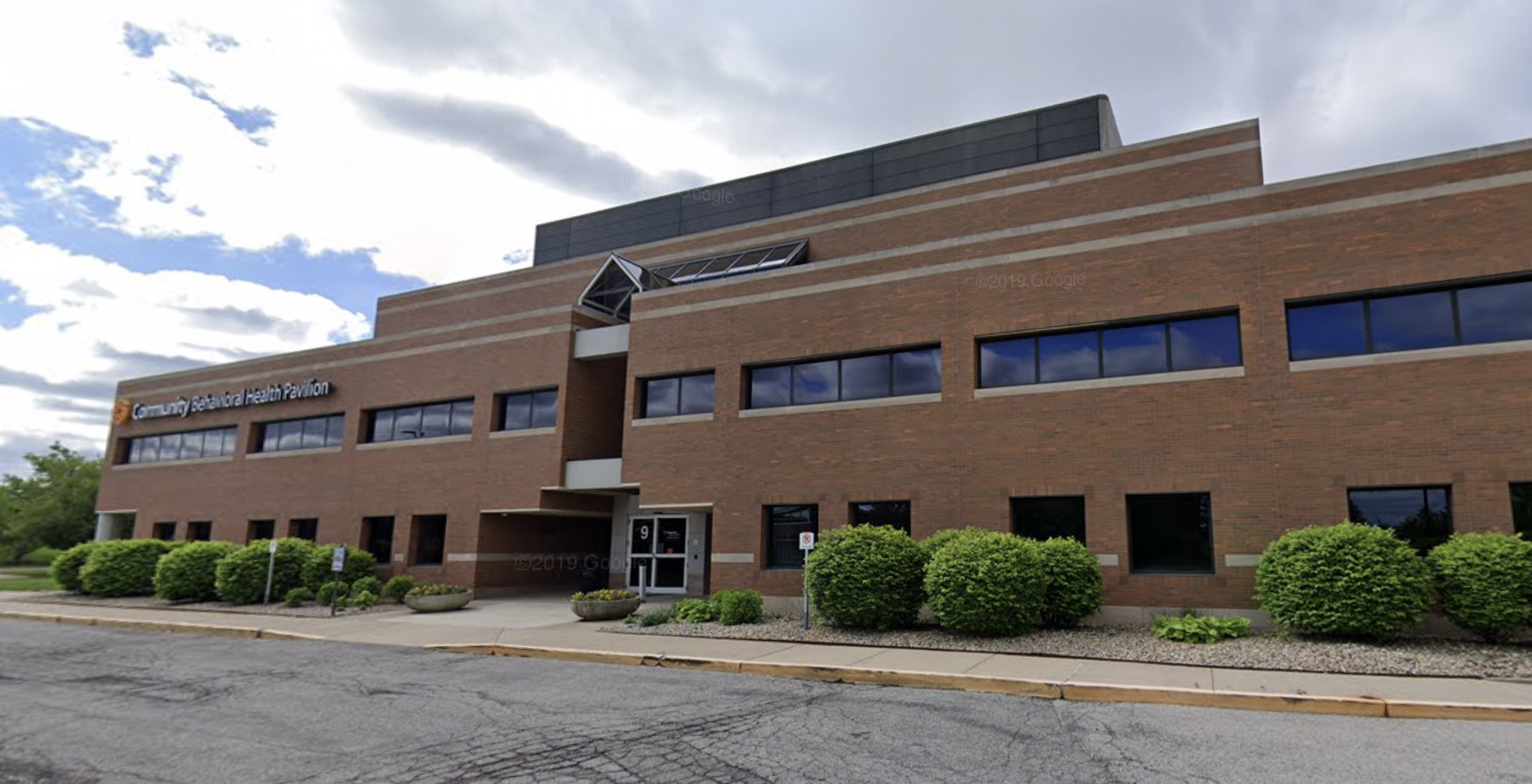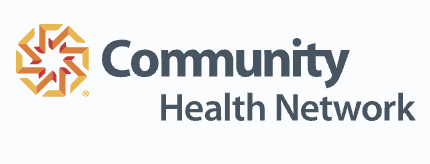Community Health Network - Community Hospital North Behavioral Health Pavilion
Overview
Community Health Network - Community Hospital North Behavioral Health Pavilion, located in Indianapolis, Indiana, provides an extensive range of behavioral health services to treat individuals with addiction and other mental health issues. This facility is dedicated to serving patients of all ages, from children as young as five to senior adults, ensuring that each individual receives personalized and compassionate care.
Services Offered:
Crisis Support:
- 24/7 Crisis Support: Immediate assistance available around the clock for individuals experiencing a mental health crisis. Trained professionals are on hand to provide support and stabilization during critical moments.
- Crisis Support Unit: Designed for those who require short-term, high levels of care to medically and psychologically stabilize for safety reasons.
Inpatient Treatment:
- Full-Service Inpatient Hospital: A comprehensive 122-bed facility divided into nine specialized units to cater to the specific needs of each patient population.
The inpatient program at Community Health Network – Community Hospital North Behavioral Health Pavilion provides intensive mental health and substance use disorder treatment services. Designed for individuals with high-level needs who require 24-hour monitoring, this program offers a structured, away-from-home environment that minimizes daily life distractions, allowing patients to focus on recovery and creating meaningful changes in their lives.
Key Features of the Inpatient Program:
24-Hour Monitoring: Patients receive continuous care and supervision from a dedicated team of healthcare professionals, ensuring their safety and well-being throughout their stay.
Psychiatric Services: Comprehensive psychiatric evaluations and ongoing medication management are provided to address complex mental health conditions and support overall treatment goals.
Counseling: Individual counseling sessions are tailored to each patient’s unique needs, offering personalized support and therapeutic interventions to address specific mental health or substance use challenges.
Group Counseling: Collaborative group therapy sessions provide a supportive environment where patients can share experiences, gain insights, and build a sense of community with others facing similar challenges.
Psychoeducational Classes: Educational sessions are designed to help patients understand their conditions, develop coping strategies, and learn essential life skills to support long-term recovery and well-being.
Community Health Network - Community Hospital North Behavioral Health Pavilion is committed to providing comprehensive and effective care for individuals with mental health and substance use disorders. The inpatient program’s structured environment, combined with a multidisciplinary approach to treatment, ensures that patients receive the highest quality of care tailored to their specific needs.
The senior inpatient program at Community Health Network - Community Hospital North Behavioral Health Pavilion, referred to as Seasons, is dedicated to addressing the unique challenges and complex issues that can arise in the later stages of life. Designed for individuals aged 65 and older, the Seasons program provides a high level of support and monitoring to facilitate significant behavioral changes and improve overall well-being.
Key Features of the Seasons Senior Inpatient Program:
High-Level Support and Monitoring: The program provides intensive support and 24-hour monitoring to ensure the safety and well-being of seniors, helping to create a foundational shift in behavior and stabilize their condition.
Individual and Group Psychotherapy: Personalized therapy sessions are designed to address each individual’s specific mental health needs, while group therapy sessions offer a supportive environment for sharing experiences and building community.
Medication Management: Comprehensive psychiatric evaluations and ongoing medication management are provided to address complex mental health conditions and support overall treatment goals.
Family Counseling and Education: Family involvement is a key component of the Seasons program, with counseling and educational sessions aimed at helping families understand and support their loved ones' recovery journey.
Physical and Recreational Therapy: The program includes physical and recreational therapy to promote overall well-being, encourage physical activity, and provide therapeutic outlets for stress and anxiety.
The youth inpatient program at Community Health Network - Community Hospital North Behavioral Health Pavilion is specifically designed for individuals under the age of 18 who require a high level of care and structured support. This program provides comprehensive mental health and substance use disorder treatment services tailored to the unique needs of young patients.
Comprehensive Psychiatric Counseling: The program includes psychiatric counseling sessions to address a wide range of mental health issues. These sessions are conducted by experienced professionals who specialize in adolescent mental health.
Thorough Assessments: Each patient undergoes thorough psychiatric and psychological assessments to determine their specific needs and develop an appropriate treatment plan.
Individualized Treatment Plans: Treatment plans are tailored to meet the unique needs of each patient. These plans are developed based on the initial assessments and are regularly reviewed and adjusted to ensure the best outcomes.
Community Health Network - Community Hospital North Behavioral Health Pavilion is committed to providing high-quality, compassionate care for youth facing mental health and substance use challenges. The youth inpatient program's comprehensive and individualized approach ensures that each patient receives the support they need to achieve lasting recovery and improved mental well-being.
Community Health Network - Community Hospital North Behavioral Health Pavilion holds accreditation from The Joint Commission, underscoring its commitment to maintaining the highest standards of patient care and safety.
Community Health Network - Community Hospital North Behavioral Health Pavilion at a Glance
Payment Options
- Access to Recovery (ATR) Voucher
- Medicaid
- Private health insurance
- Cash or self-payment
- State-financed health insurance plan other than Medicaid
Assessments
- Comprehensive mental health assessment
- Comprehensive substance use assessment
Age Groups
- Adults
- Children/adolescents
- Young adults
Operation
- Private non-profit organization
Accreditations
The Joint Commission:

The Joint Commission accreditation for addiction and behavioral health signifies that a facility has met rigorous standards in patient care, treatment, and safety. This recognition assures patients and professionals of the facility's commitment to providing high-quality, evidence-based care in the fields of addiction and behavioral health, fostering trust and confidence in their services.
Treatment At Community Health Network - Community Hospital North Behavioral Health Pavilion

Conditions Treated
Mental health treatment:
Mental health services are essential during treatment for drug and alcohol addiction, whether you receive treatment in an inpatient or outpatient setting. While receiving inpatient care, you can expect to have round-the-clock access to mental health therapists and medical staff. Additionally, you will likely receive a number of different therapies and mental health options like individual and group counseling, addiction and relapse prevention education, and coping skills training.
Alcoholism:
Alcohol addiction is a disease that changes the way the brain works. It causes negative emotions, impulsive behavior, cravings and withdrawal symptoms. Treatment for alcohol addiction includes supervised detox, counseling and therapy, and support group participation. Rehabilitation does not cure alcoholism. Instead, it helps the individual manage their addiction, restore their functioning, and well-being.
Opioid Addiction:
Opioid rehabilitation centers focus on aiding individuals in overcoming opioid addiction, whether stemming from illegal substances like heroin or prescription medications like oxycodone. These facilities provide a comprehensive approach that combines medical detoxification and ongoing physical care with intensive therapy to address the root causes of addiction.
Substance use treatment:
Substance use rehabilitation embodies a holistic treatment approach crafted to assist individuals contending with drug or alcohol addiction. This all-encompassing rehabilitation strategy encompasses two crucial components: initially addressing the physical dependency, frequently commencing with detoxification, and subsequently confronting the psychological triggers through a diverse array of therapeutic methods. The overarching objective is to empower individuals to achieve and maintain sobriety while equipping them with essential skills and coping mechanisms for a successful reintegration into society and a life free from substance abuse.
Co-occurring Disorders:
Dual-diagnosis rehabs are usually the appropriate solution to treat co-occurring mental health and substance abuse disorders. These facilities typically employ medical and behavioral experts who use a range of interventions, together with the right healing environment, for you to achieve and sustain long-term recovery. Treatment usually includes evidence-based therapies (like cognitive behavioral therapy), recovery support meetings, 12-step facilitation, psychoeducation, skills training, and group therapy.

Levels Of Care
Hospital inpatient detoxification:
Hospital Inpatient Detoxification is a comprehensive medical intervention designed for individuals who require intensive care and supervision while undergoing withdrawal from alcohol, drugs, or other addictive substances. This setting provides round-the-clock medical monitoring, ensuring the safety and well-being of patients as they transition through the acute phase of detoxification.
Detoxification:
Detoxification (detox) is the process of clearing the body of drugs or alcohol that an individual has consumed. The purpose of detox is to safely manage withdrawal symptoms when someone stops taking drugs or alcohol. It denotes a clearing of toxins from the body of the patient who is acutely intoxicated and/or dependent on substances of abuse. Detoxification seeks to minimize the physical harm caused by the abuse of substances.
Hospital inpatient treatment:
Inpatient treatment includes an all-encompassing residential therapeutic regimen, during which patients reside on-site for a period usually spanning 30 to 90 days. Within this immersive setting, individuals receive structured assistance, prioritizing their safety and fostering a dedication to recovery. The treatment modalities offered may include individual and group counseling, cognitive-behavioral therapy, holistic interventions, family therapy sessions, as well as experiential therapies. The overarching objective is to comprehensively address the physical, emotional, and psychological dimensions of addiction or mental health disorders, establishing a resilient groundwork for long-term healing.

Treatment Modalities
Individual psychotherapy:
Individual Psychotherapy provides a private, one-on-one setting where clients can explore and address their personal challenges, behaviors, and feelings related to addiction and recovery. With the guidance of a trained therapist, clients work to uncover the root causes of their substance use, develop coping strategies, and build a foundation for long-term recovery and personal growth.
Family counseling:
Family counseling is a therapeutic approach that addresses the dynamics, interactions, and challenges within a family unit. Through guided discussions and interventions, a trained counselor helps family members understand one another, resolve conflicts, improve communication, and strengthen their bonds. This form of therapy can be beneficial for families facing transitions, stressors, or behavioral issues, promoting understanding and facilitating positive change in the familial environment.
Trauma-related counseling:
Trauma therapy addresses the underlying emotional and psychological wounds that may contribute to an individual's substance abuse. Through a combination of psychotherapy and coping strategies, individuals are aided in processing past traumatic experiences, understanding the impact of trauma on their current behavior, and developing healthier coping mechanisms. This holistic approach fosters resilience, aids in the resolution of trauma, and is fundamental in supporting individuals on their path toward sustained recovery from addiction.
Group counseling:
Group Counseling is a therapeutic approach where individuals come together under the guidance of a trained counselor to share experiences, provide mutual support, and gain insights. It fosters a sense of community, promotes understanding through diverse perspectives, and offers personal growth and problem-solving strategies.
Cognitive Behavioral Therapy:
Cognitive Behavioral Therapy (CBT) is a evidence-based psychotherapeutic approach that aims to address dysfunctional emotions, behaviors, and cognitions through a goal-oriented, systematic process. It involves identifying and challenging negative thought patterns and beliefs and replacing them with more constructive ways of thinking and behaving. CBT is commonly used to treat a variety of mental health disorders, including depression, anxiety, and phobias.
Dialectical Behavior Therapy:
Dialectical Behavior Therapy (DBT) is a form of psychotherapy that blends cognitive-behavioral approaches with mindfulness strategies. It is particularly effective in treating addiction, as it addresses the underlying emotional pain and destructive behaviors that often accompany substance misuse. Through enhancing emotional regulation, distress tolerance, interpersonal effectiveness, and mindfulness, DBT equips individuals with the coping skills necessary to maintain sobriety and improve their overall quality of life.
Ancillary Services
Languages
- Sign language services for the deaf and hard of hearing
Special Programs
- Clients who have experienced trauma

Additional Locations
Contact Information
DISCLAIMER: The facility name, logo and brand are the property and registered trademarks of Community Health Network - Community Hospital North Behavioral Health Pavilion, and are being used for identification and informational purposes only. Use of these names, logos and brands shall not imply endorsement. BetterAddictionCare.com is not affiliated with or sponsored by Community Health Network - Community Hospital North Behavioral Health Pavilion.



